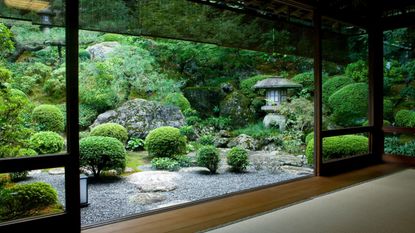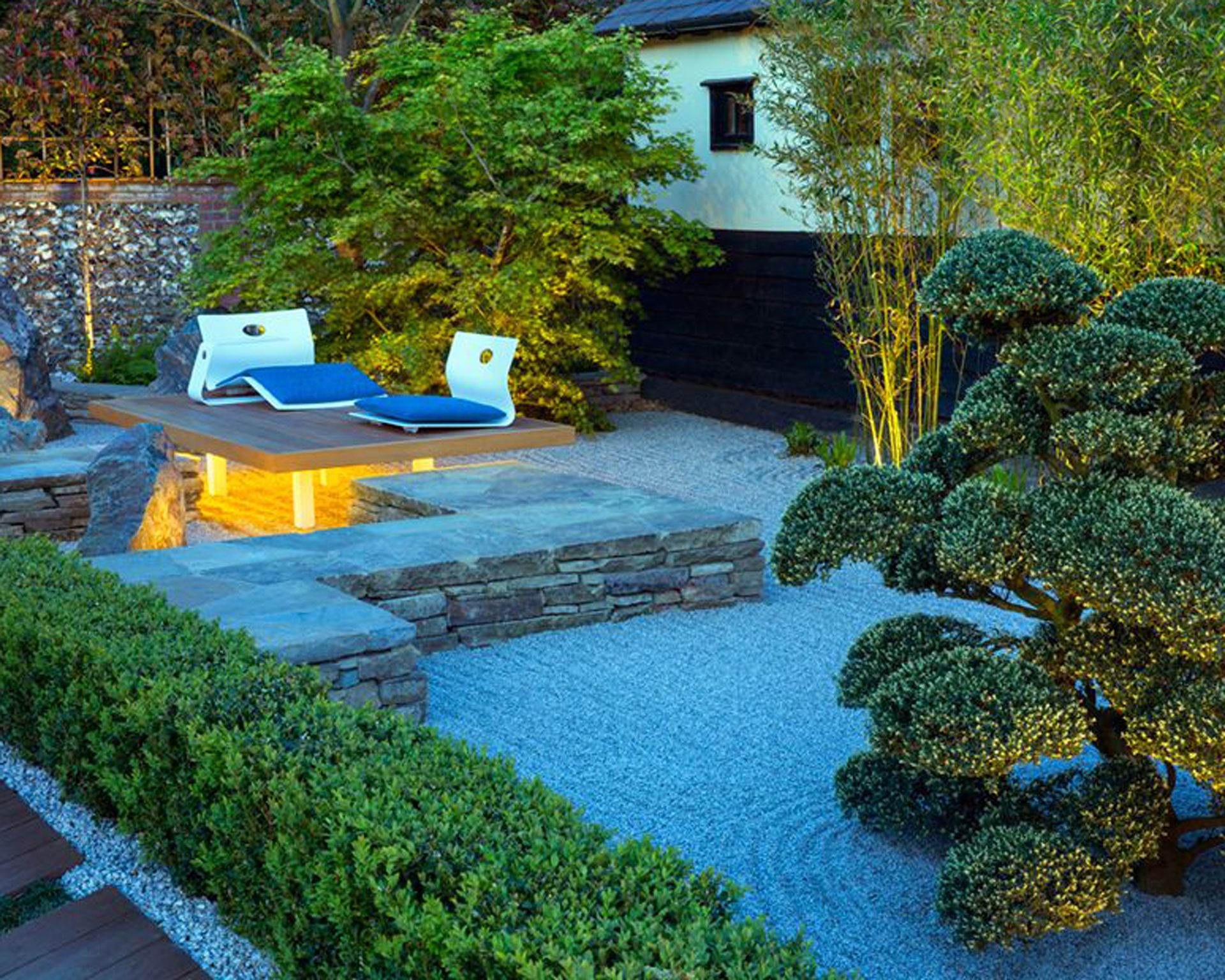Landscape experts share the secrets to creating an urban Zen garden - the perfect antidote to city life
Experts share the key features you need to focus on to reap benefits of an urban Zen garden


An urban Zen garden is the perfect small garden idea, especially in tiny urban courtyards where hardly anything fits. While the idea of a Zen garden might summon up images of desk accessories this style of gardening is not only a clever space-saving solution but can improve your happiness.
Japanese Zen gardens have a distinctive style that people of all cultures have embraced – a satisfying blend of minimalism and cheerfulness, renowned for grey granite gravel that can be endlessly reshaped with a rake. These contemplative, perfectly balanced spaces help their owners discover serenity and calm – and maybe even a spiritual dimension to time spent outdoors.
Gardening has been proven by numerous studies to reduce stress, improve health, and even increase longevity. A Zen garden compounds these benefits and is suitable for outdoor spaces of all sizes and aspects. Plus it only really requires three elements – paving, rock, and a few standout plants – to create an oasis of calm.

If you are tempted to create your own urban Zen garden experts shares the three key features you need to focus on when creating one.
What makes a Zen garden - The key features
1. Spirituality is everything
We asked contemporary garden designer Amir Schlezinger what defines Zen gardens – and what distinguishes them from other minimalist gardens. Amir's succinct and elegant answer is: 'Spirituality. And heritage, tradition, culture, religion, history, dedication, devotion, and, of course, the analogy of nature in all its forms.'
In contrast to other gardening styles, a Zen garden isn't about what it looks like, but what effect it has on the mind and spirit. Shunmyo Masuno, Japan's leading garden designer and an 18th-generation Zen Buddhist priest calls the Zen garden 'a special spiritual place where the mind dwells.'

2. Less is more
Because Zen gardens have always been designed with quiet contemplation and spiritual practice in mind, they always have simple, uncluttered designs. Less is always more in a Zen garden.
Russ Chard writes in Japanese Zen Gardens that '[w]hile average Western gardens tend to be packed with adornments until no further space is available, a Zen garden evokes a constant tribute to minimalism.'
However, this doesn't mean that everything has to be perfectly symmetrical. While 'tidiness' and 'precision' are characteristic of Zen gardens, so is 'an informal, natural character'.

The easiest way to put this seemingly contradictory philosophy into practice is by respecting the spaces between plants in your Zen garden. This garden style devotes as much attention to the gravel ('religiously raked', as Amir puts it) and any ornamental rocks or decked areas as to plants. You don't need a dense planting scheme, a couple of specimen plants – a Japanese acer, a bonsai or cherry tree, or tall bamboo – are enough.
3. Include a centerpiece tree

Designing a Japanese garden in Essex, Amir chose a hybrid cherry tree as the centerpiece or 'all-year-round essence' of the garden, adorning the garden with 'pink confetti snow' in spring, all the way through to 'glorious autumnal spectrum of striking crimson foliage.'
This decision really captures the spirit of Zen and its emphasis on observing and enjoying the natural world moment by moment. There are no fancy statues or ornaments – instead, there is the conversation between the plants and the natural materials. In a small space, this centrepiece could be a small potted tree or even a bonsai tree on a stand.
Zen gardens are simple to create, but require careful thought and planning to reap the full benefits.
Be The First To Know
The Livingetc newsletter is your shortcut to the now and the next in home design. Subscribe today to receive a stunning free 200-page book of the best homes from around the world.

Anna is a professional writer with many years' experience. She has special interests in architecture, photography, and high-end interior design. Her work has appeared in Homes & Gardens, Gardeningetc, and many other publications.
-
 People With Spa Bathrooms Will Likely Have These 8 Things — Get the Look With Our Checklist
People With Spa Bathrooms Will Likely Have These 8 Things — Get the Look With Our ChecklistHomeowners with spa-like bathrooms typically have these seven things, how many do you have?
By Oonagh Turner Published
-
 7 Vegetables You Can Plant in February – Our Favorite Varieties That Can be Either Sown or Planted Outdoors Now
7 Vegetables You Can Plant in February – Our Favorite Varieties That Can be Either Sown or Planted Outdoors NowGet planting these easy salad and vegetable varieties now and you will soon have plenty of fresh early spring crops
By Sarah Wilson Published

